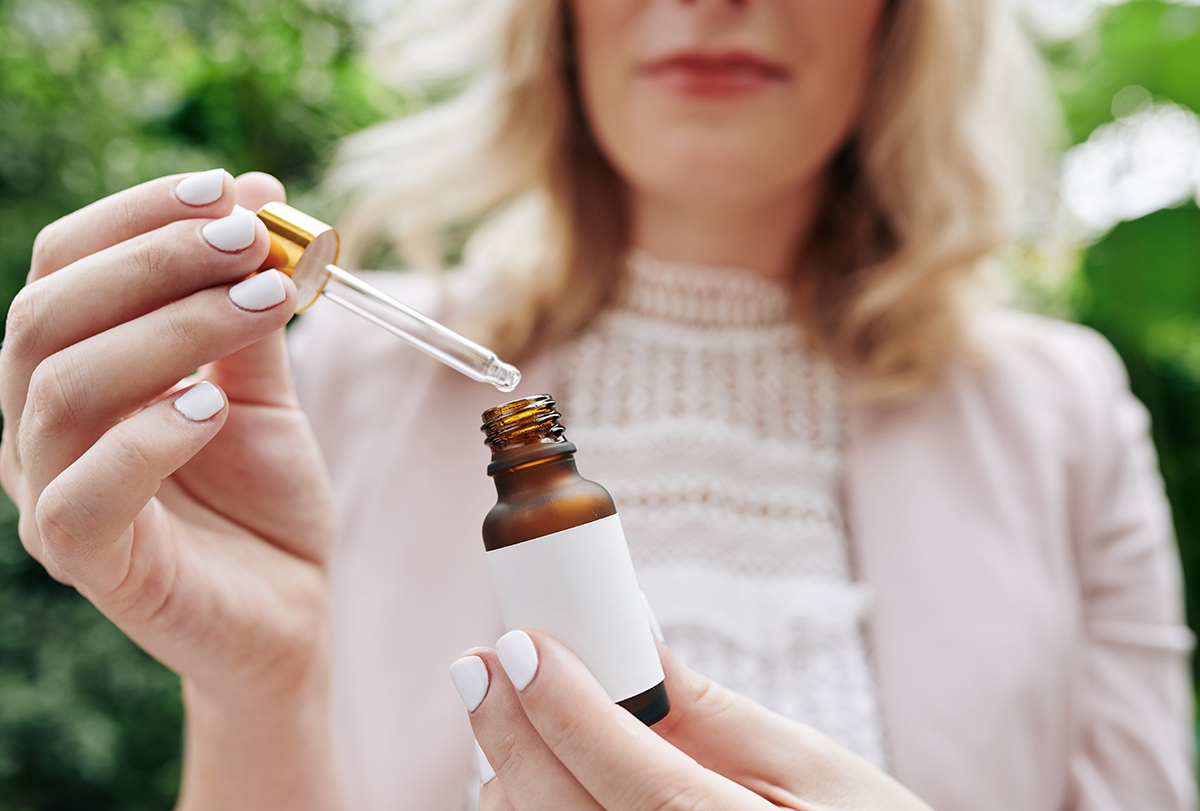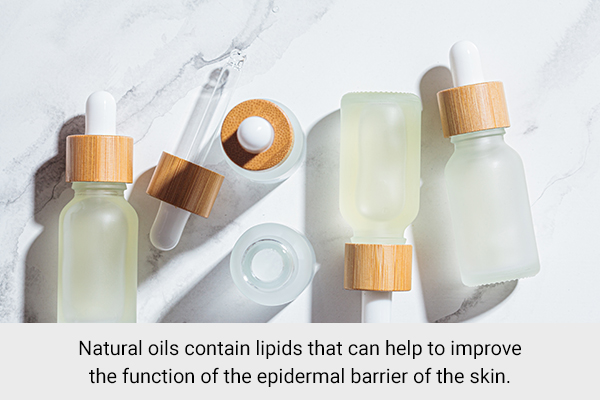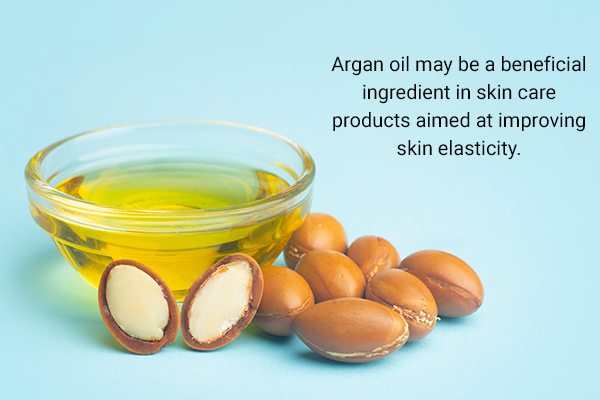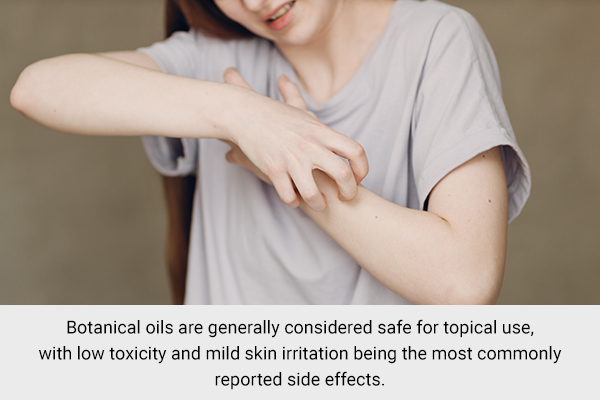In this article:
To answer in the simplest terms, “No, oils do not hydrate your skin.”

When it comes to skin care, there are two important concepts to understand: hydration and moisturization.
Hydration refers to the process of adding water to your skin, while moisturization refers to retaining that water and keeping your skin soft and supple.
Now, here’s the key point: oils do not directly hydrate your skin by adding water to it. Oils act as a protective layer on the surface of your skin, forming a barrier that helps to seal in existing moisture.
In other words, oils help to trap and lock in the moisture that is already in your skin, but they don’t provide the water content themselves. So, oils cannot be considered hydrating. They are only moisturizing.
Why Don’t Oils Hydrate the Skin: Scientific Evidence?
Oils are great for moisturizing and keeping your skin smooth, but they don’t directly hydrate your skin by adding water.
Scientific evidence supports the notion that oils do not directly hydrate your skin.
A study conducted on the effects of bath oils found no significant difference in skin surface hydration. While the water-holding capacity of the skin may slightly increase after an oil bath, this effect is not significant for skin surface hydration. (1)
What’s intriguing is that the study also discovered that the duration of the bath, whether it was a 5-minute or a 20-minute bath, did not have a significant impact on skin hydration. (1)
However, oil baths were found to increase the skin’s surface lipids for at least 3 hours, which is similar to the effect of traditional moisturizing lotions.
Note: For proper hydration, it’s important to use products and implement measures that actually deliver water to your skin. These can include using hydrating serums and moisturizers with water-based ingredients and drinking enough water throughout the day. These methods provide the necessary hydration that your skin craves.
If They Don’t Hydrate, What Do Oils Do for Your Skin?
In addition to imparting moisture to your skin, oil application offers the following skin care benefits.
1. Improve skin barrier function to decrease water loss

Natural oils contain lipids that can help to improve the function of the epidermal barrier. When applied topically, these oils can act as a mechanical barrier to help prevent moisture loss and protect the skin from environmental stressors.
Additionally, the lipid constituents of these oils can help to stimulate the synthesis of barrier lipids, which are important for maintaining healthy skin. This is why traditional oil massages using natural vegetable oils are often used in developing countries as a safe and effective way to improve skin health in neonates.
The results of a study suggested that a single application of sunflower seed oil can significantly accelerate the recovery of the skin barrier. According to the study, the effects of the oil were observed within just 1 hour after application, and this improvement was sustained for up to 5 hours.
These findings suggested that sunflower seed oil may be a useful and effective ingredient for improving skin barrier function and supporting overall skin health. It improves the hydration capability of the skin by maintaining its water-holding capacity but not hydrating it directly. (2)(3)
2. Moisturize the skin
Oils can be great at keeping your skin moisturized.
A study that compared extra virgin coconut oil (EVCO) with mineral oil in moisturizing mild to moderate xerosis, or dry skin, found that both EVCO and mineral oil were effective in moisturizing the skin. However, EVCO was more effective than mineral oil in reducing skin dryness.
In addition, the study found that EVCO had a better effect on skin barrier function than mineral oil, as it reduced transepidermal water loss (TEWL) and increased the water content in the skin.
The authors suggested that the high lauric acid content of EVCO, which has antimicrobial and anti-inflammatory properties, may contribute to its better performance in improving barrier function and thereby enhancing hydration levels. (4)
3. Improve skin elasticity

Oils can be a useful part of your skin care regimen by improving the skin’s elasticity.
One study demonstrated that the application of argan oil resulted in a significant improvement in skin elasticity. The study measured different types of skin elasticity, including gross elasticity, net elasticity, and biological elasticity. The results showed a statistically significant increase in all three types of skin elasticity after the application of argan oil. (5)
This result suggested that argan oil may be a beneficial ingredient in skin care products aimed at improving skin elasticity. (5)
4. Manage cutaneous scars
Oils can also be used on scars for their management.
A study investigated the effectiveness of pure rosehip seed oil in improving the appearance of post-surgical scars. The patients applied pure rosehip seed oil to their scars for 12 weeks after surgery.
The results of the study showed that the application of pure rosehip seed oil resulted in a significant improvement in the appearance of post-surgical scars. The scars were evaluated at different time points after the surgery, and a gradual improvement in the scars’ appearance was observed over time, with the most significant improvements observed at week 12. (6)
The study also found that the use of oil led to a reduction in scar pigmentation and improvements in scar softness and flexibility. (6)
Oils for Topical Use
The following table will help you choose the most suitable oil for your skin based on your needs. (7)
| Oil | Skin barrier repair | Antibacterial effect | Anti-inflammatory effect | Wound healing effect | Antioxidant effect | Antiaging effect |
|---|---|---|---|---|---|---|
| Olive oil | No | N/A | Yes | Yes | Yes | Possible |
| Sunflower oil | Yes | N/A | Yes | Possible | N/A | N/A |
| Coconut oil | Yes | Yes | Yes | Yes | Yes | Yes |
| Argan oil | Yes | N/A | Yes | Yes | N/A | N/A |
| Soybean oil | Yes | Yes | Yes | N/A | Yes | N/A |
| Avocado Oil | N/A | N/A | Possible | Yes | N/A | N/A |
| Jojoba oil | Yes | Possible | Yes | Yes | Yes | Yes |
| Rosehip oil | Possible | N/A | Yes | N/A | Yes | Yes |
| Almond oil | Possible | N/A | N/A | N/A | N/A | Yes |
Where Do Oils for Topical Use Come From?
Botanical oils are fats obtained from plants and can be divided into fixed and essential oils.
Fixed oils, also known as vegetable oils, consist of a combination of saturated, monounsaturated, and polyunsaturated fatty acids attached to a glycerol molecule. Essential oils, on the other hand, are volatile and contain various aromatic compounds that give them their characteristic fragrance.
These oils are widely used in skin care, aromatherapy, and other applications due to their potential therapeutic properties, which may include anti-inflammatory, antioxidant, and antimicrobial effects. (8)
Safety Profile of Topically Used Botanical Oils

Botanical oils are generally considered safe for topical use, with low toxicity and mild skin irritation being the most commonly reported side effects. However, the potential negative effects of these oils can vary depending on the dose, form, and site of application.
It’s important to note that while most botanical oils are generally well tolerated by adults, allergic skin reactions can occur in some individuals.
It’s also worth mentioning that many botanical oils have been recognized as safe for use as a dietary supplement by the US Food and Drug Administration, further supporting their overall safety for use in a variety of applications. (8)
Most-Asked Questions
Which skin oil can help with improving my complexion?
Research shows that almond oil can be useful in improving complexion. (7)
Which oil can I use for striae or stretch marks?
Research shows pomegranate seed oil, olive oil, and coconut oil can be useful in dealing with striae. (7)
Final Word
Oils can help to moisturize and condition the skin by forming a barrier that helps to prevent water loss, but they do not actually hydrate the skin.
Hydration refers to the absorption of water into the skin, which is essential for maintaining healthy and plump-looking skin. Oils cannot add water to the skin, so they are not hydrating in the traditional sense.
- Was this article helpful?
- YES, THANKS!NOT REALLY


